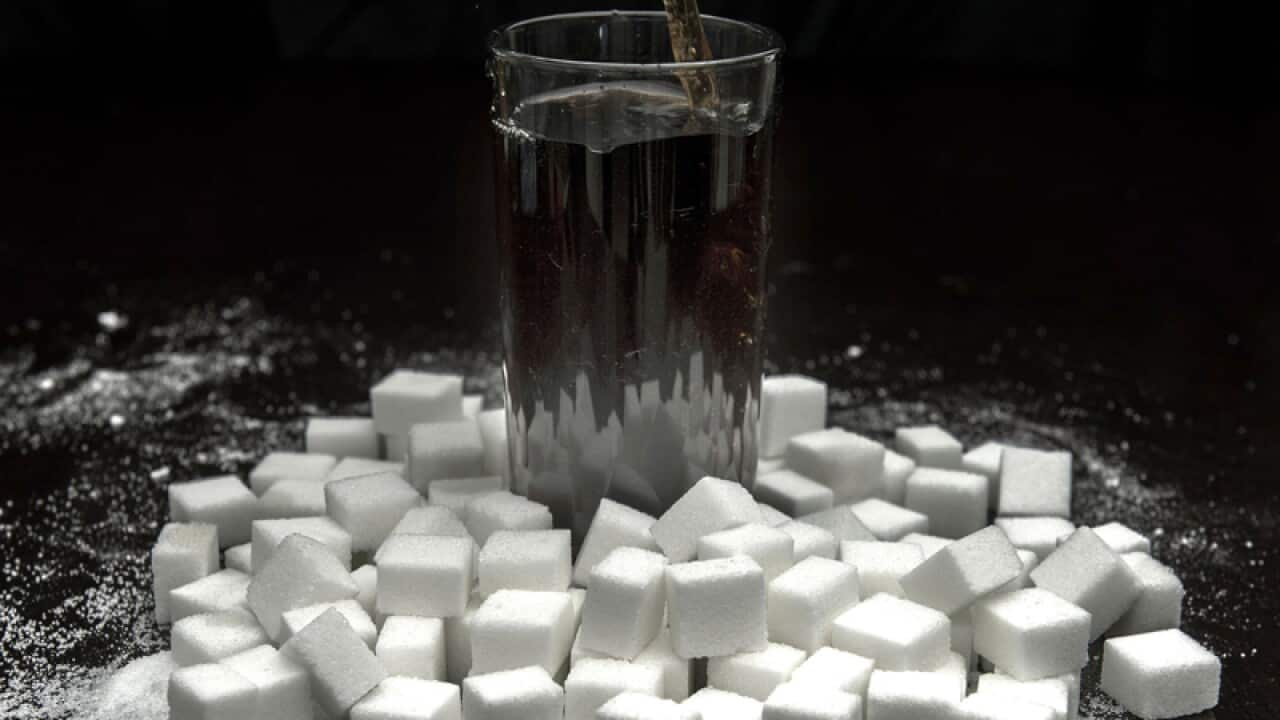Australians are getting fatter but the chances of a sugar tax being imposed on soft drinks is slim.
Deputy Prime Minister Barnaby Joyce has ruled out the Nationals supporting the latest call for a sugar tax to address rising obesity in Australia.
It's not the job of the tax office to promote healthy lifestyles, people should eat less and exercise more, said Mr Joyce.
"If you want to deal with being overweight, here's a rough suggestion - stop eating so much and do a bit of exercise," he told reporters in Canberra.
A Grattan Institute report, presented to federal parliament on Wednesday, recommended a sugar content tax of 40 cents per 100 grams of sugar on water-based, non-alcoholic sugar-sweetened beverages.
It would raise $520 million in tax revenue in 2017 and the cost to the consumer would be minimal, argues the institute's health program director Stephen Duckett.
The institute's researchers estimate the tax would increase the average cost of a two-litre bottle of soft drink by about 80 cents, leading to a 15 per cent reduction in consumption.
Not surprisingly, the report met with much opposition from the retail, farming, grocery and beverage sectors.
They argue a sugar tax is simply a revenue raiser, not a health prevention measure.
The Australian Association of Convenience Stores (AACS) says there is no evidence that shows a sugar tax on soft drinks would reduce obesity and such a move would hit small businesses hard.
"Small businesses like convenience stores are much less able to absorb the additional costs than the major supermarkets," said AACS chief executive Jeff Rogut.
Mr Rogut says the economic ramifications for suppliers and retailers of a sugar tax would be immense, yet the potential for it to improve health outcomes is "unknown".
There's been a dramatic increase in obesity over the past 25 years, with one in four Australian adults now considered obese and about seven per cent of children are obese.
People are eating more but are doing less activity.
In addition to the costs that fall on obese people themselves, there are 'enormous' costs to taxpayers.
Mr Duckett says a sugar tax on sugary drinks would help to recover the "cost of obesity", estimated to be $5.3 billion each year.
The Obesity Policy Coalition (OPC) says the Australian government only needs to look overseas to see that taxing sugary drinks works.
Fifteen countries, including France and Fiji, have implemented a tax on sugary drinks, or plan to do so, along with four cities and districts in the United States.
"We know from overseas experience that taxing sugary drinks works to reduce consumption, particularly among young people, which is why the World Health Organisation recommends the policy and countries like the UK and South Africa have jumped on board," said the OPC's executive manager Jane Martin.









